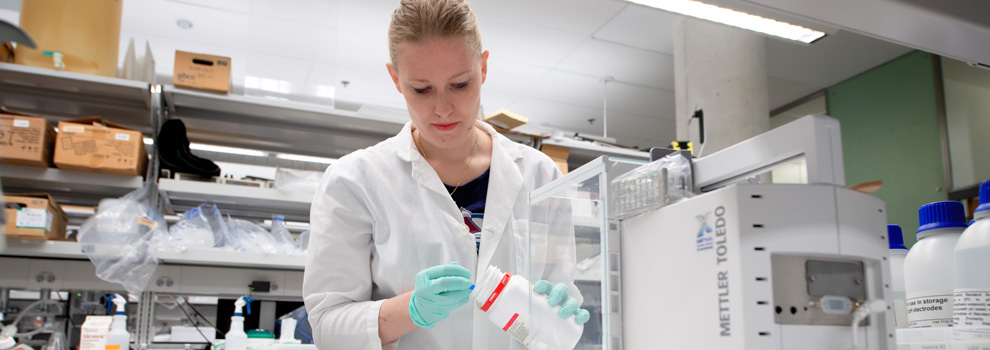
University of Iowa faculty and fellows (see Admission Requirements) are eligible to enroll in this master's degree program. The M.S in Translational Biomedicine (MS TBM) degree offers training in translational biomedicine, biostatistics, ethics, and numerous elective areas while providing time to conduct mentored research under the direction of an interdisciplinary team.
Program overview
The M.S. program is designed to teach members of scientific teams how to move biomedical discoveries into clinical applications and beyond. It is tailored for individuals who have completed training in one area of biomedicine and wish to apply their expertise to the T1-T4 research spectrum.
Requirements
Minimum requirement of 30 s.h. of graduate credit is required upon completion.
The plan of study for students in the two-year program is based on their chosen discipline.
Admission
The program admits individuals who hold medical or graduate degrees and are employed by the University of Iowa at one of the following faculty ranks:
- Assistant Professor
- Associate Professor
- Instructor
- Fellow Physicians
- Postdoctoral Scholars/Fellows
Program goals
The goals of the Master of Science Translational Biomedicine program are to:
- Promote interaction and collaboration among researchers across the spectrum of biomedicine
- Enrich translational vocabulary and an understanding of T1 - T4 research among basic, clinical, and human studies scientists
- T1 research - laboratory
- T2 research - application to evidence-based practice
- T3 research - implementation and dissemination
- T4 research - population studies and policy development
- Develop skills in ethical decision making, scientific leadership, team building, networking, and research program management
Tailored to clinicians in the following areas:
- Medicine
- Nursing
- Pharmacy
- Dentistry
- Psychology
Degree requirements:
- Publishable manuscript presenting findings of original research
- NIH (K or R) Award grant application or an NSF Grant Application
Help the Institute for Clinical and Translational Science at the University of Iowa continue making new strides in medical research by citing the NIH CTSA program grant UM1TR004403.